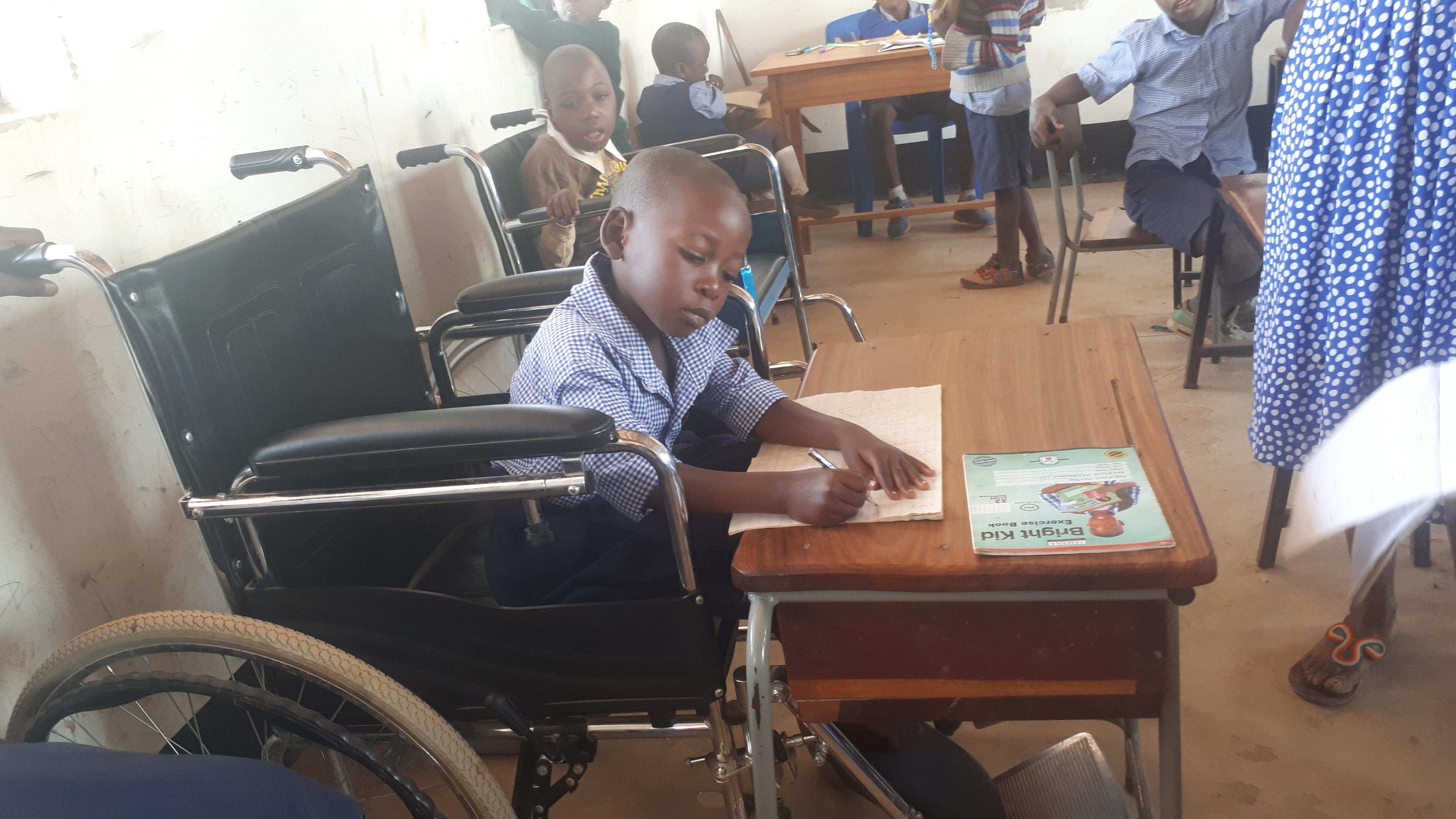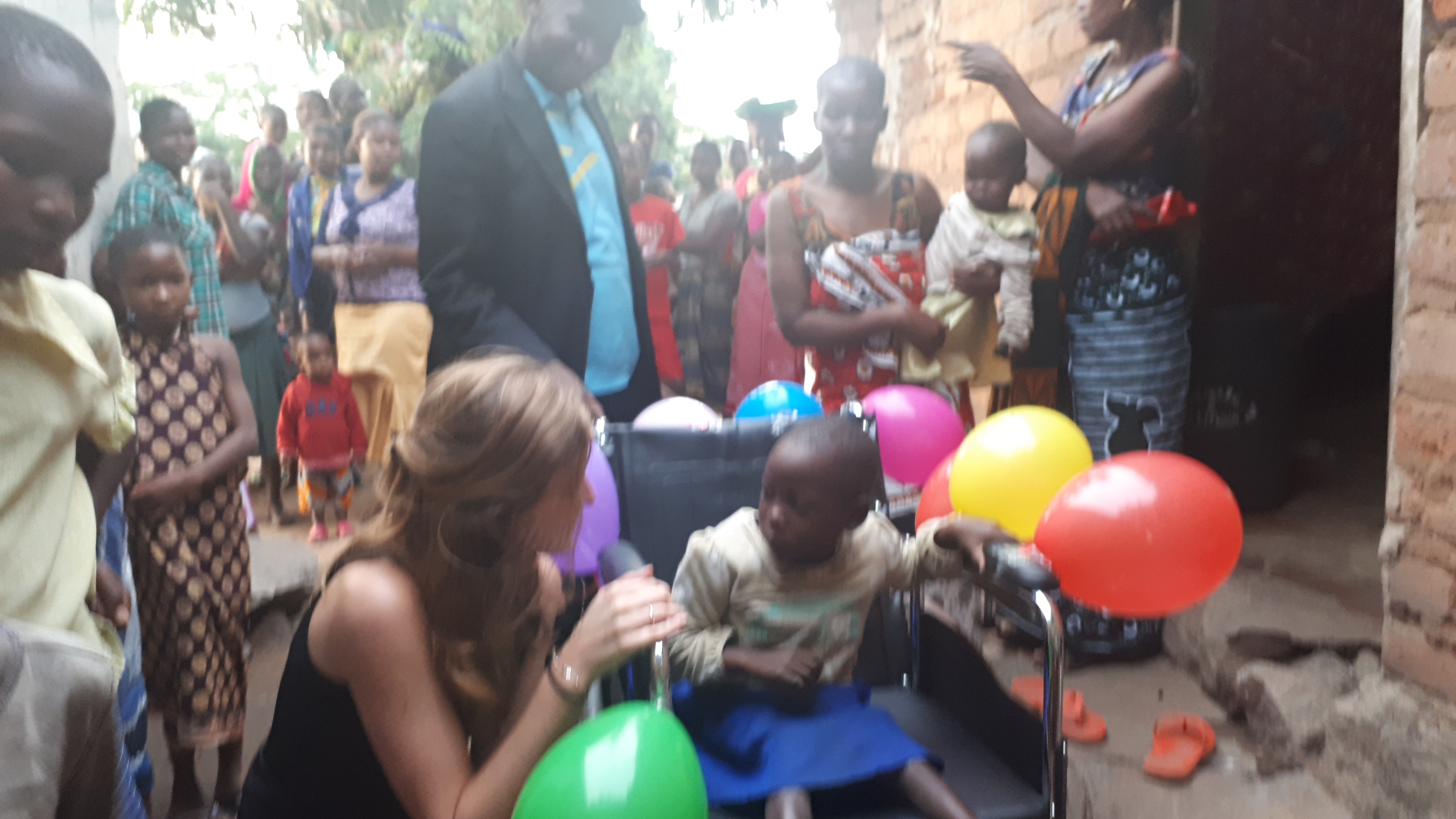Disability Support

Children with disabilities are among the most vulnerable and marginalized groups in Tanzania. Despite the Government’s efforts to support primary education, 98% of children with disabilities are not in school and the rate of children with a disability enrolled in schools is only 0.3%.
Children with disabilities are among the most vulnerable and marginalized groups in Tanzania. Despite the Government’s efforts to support primary education, 98% of children with disabilities are not in school and the rate of children with a disability enrolled in schools is only 0.3%.
This issue has many compounding factors from physical barriers to stigma and discrimination to gender discrimination and poverty. As a result, children with disabilities are the last to be enrolled and the first to drop out of school.
Lack of access to this basic human right curtails life chances, perpetuating the poverty and exclusion cycle for people with disabilities. Parents hiding children at homes has been a culture, fearing neighbors to see their children, feeling punishment from God has been a reason for disabled children hidden inside.

Contributing key factors are:
- A poor local belief on disability issues leading to a belief that it’s a sin and punishment to have disabled children. This belief has led most children to be kept inside.
- Stigma, discrimination, abuse, and isolation from family, community members, peers, and teachers prevent these kids from going to school.
- High educational costs and affordability limitations due to high levels of poverty of families with disabled children.
- Inaccessible school buildings and toilets prevent children from attending school
- Inaccessible materials and teaching methods prevent children with disabilities from learning
- Children with disabilities receive limited support and encouragement from parents, who are less committed to their education than that of their non-disabled children
- An insufficient effort from state actors to apply disability policies
- Double discrimination is faced by girls who are not prioritized as gender norms often prevail over education
What needs to change to achieve the intended outcomes?
Children need to have the necessary assistive devices to go to school.
Children with disabilities need to receive appropriate health & rehabilitative support to increase their regular attendance.
Children need to receive health & intellectual assessments to ensure hidden disabilities are identified & supported.
- Policymakers need to improve disability rights and its benefits and increase commitment towards implementation.
Parents, families, teachers & community members need to be more aware of gender issues & rights.

CDI’s Role
CDI identified this challenge and hence established the WAPE ELIMU- Swahili words meaning EDUCATE THEM. The campaign is aimed at improving education for children with disabilities and ensuring that the number of disabled children enrolled in schools increases each year.
This is done through conducting village to village outreach activities on disability rights and to emphasize to parents with disabled children the need to take them to school and not hide them inside. Furthermore, CDI supports children with disabilities by providing learning materials, school uniforms and also providing voluntary teachers with disability knowledge. CDI hosts volunteers who are willing to help young disabled children to meet their dream. Volunteers assist teachers to teach these children and share their experience on disability issues.
